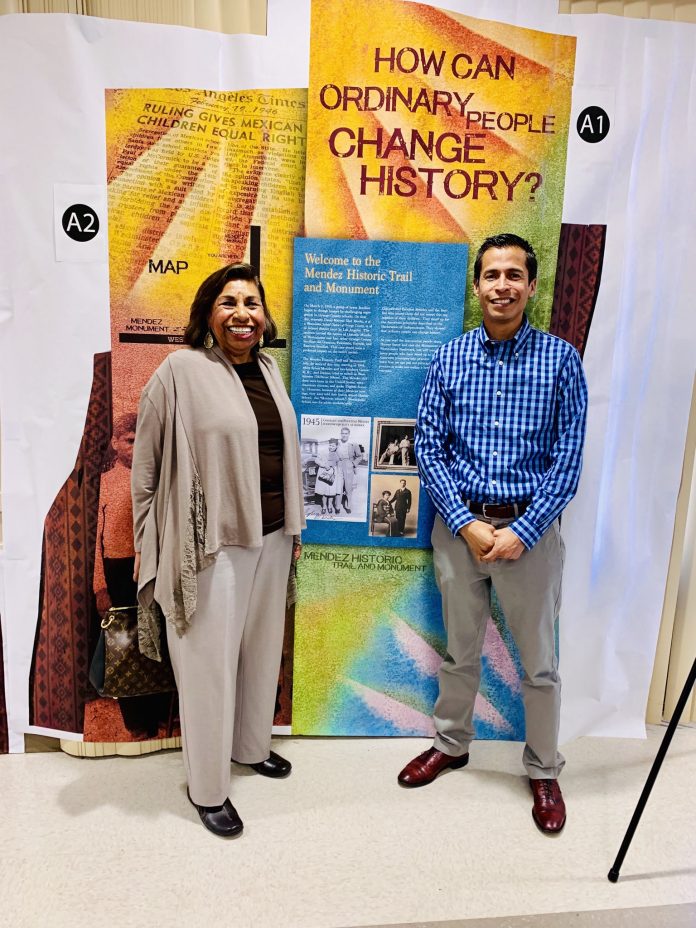The City of Westminster recently hosted a community open house with renderings of what one day will be the Historic Mendez Freedom Trail and Monument, paying homage to the watershed Mendez vs. Westminster School District case that led to the integration of California schools and was a precursor to Brown vs. Board of Education.
The Mendez Freedom trail will run along a 2.5-mile stretch of Hoover Street and feature trail stations honoring the civil rights court case with historic roots in Westminster.
The trail is expected to open next month.
“The case of Mendez vs. Westminster impacted all of us, but yet most residents have never heard about it,” Westminster City Councilman Sergio Contreras said. Contreras is a founder of the Tribute Monument Committee that pushed for the trail and monument. “This case paved the way for later decisions that would end school segregation once and for all in our nation. By reminding people that equality is what ultimately leads to the end goal we all seek – a society where people succeed and are judged based on their merits rather than on their skin tone or affluence – we can work to progress in that direction. By building this Freedom Trail, we hope to further expand Westminster’s profile as a national leader and solidify its civil rights legacy in the minds of residents and visitors.”
Hundreds of community members, teachers and students attended the open house that featured reproductions of many of the features that will be included along the trail. The Orange County Department of Education partnered with the City of Westminster to create content and curriculum for the project.
The 1946 court case, Mendez vs. Westminster School District, had an immediate impact on California and put a human face on the legacy of racism and and the terrible costs to American children. The Mendez case centered on 13 families who joined together to argue that segregating schools — at the time, Westminster had so-called “White” schools and so-called “Mexican” schools — violated the 14th Amendment as an unconstitutional denial of equal protection.
During the suit, the school district countered the plaintiffs by arguing that Mexican American children were inferior to Anglo-American children; carried contagious diseases; and were limited by their “language deficiency.”
The Mendez case was ultimately heard by the state and federal court. The verdict declared that the separate “Mexican Schools” were unconstitutional and that decision paved the way for civil rights legislation nationwide.
Those wishing to learn more about the project can visit MendezTribute.com.












